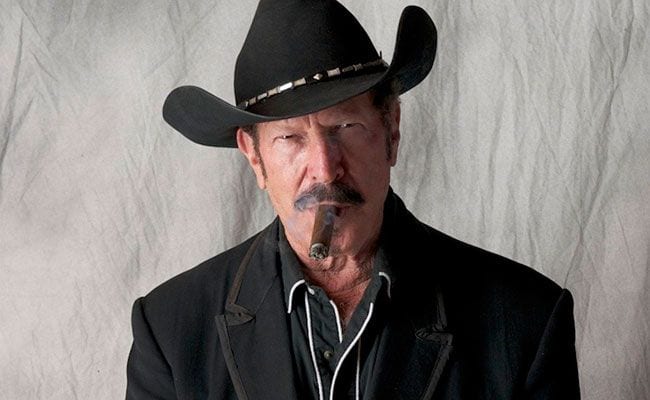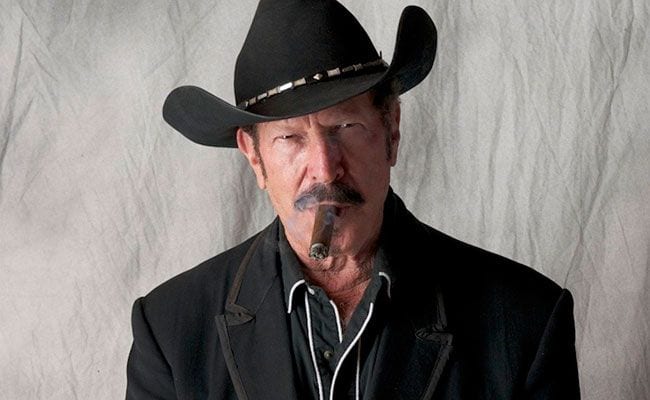
Kinky Friedman has a history as an imaginative songwriter and a singer with a limited voice, so it comes as a surprise that the 70-year-old Texan has put out an album of a dozen cover songs on his first studio recording in more than three decades. Okay, so technically Friedman wrote or co-wrote three of the tunes, but it has been so long since he record two of them that he’s basically covering himself and the third — the title track — a tribute to the late, great outlaw Tompall Glaser, sounds just like the classic songs of alcoholic inspired country music of the past.
The real surprise is how well the former gubernatorial candidate from the Lone Star state performs the material. Friedman uses his well-worn voice to effectively convey feelings of despair and isolation without sounding self-indulgent. It’s like straight whiskey that’s a bit raw but all the better for it. You know what’s in the bottle. There’s something clean and honest about the drink.
Friedman sparingly uses accompanists. He’s backed by Joe Cirotti on strings, Brian Molnar on guitar, Jeff “Little Jewboy” Shelby on keyboards, and no drummer. These musicians largely stay out of the way, as do guest stars such as Willie Nelson, Nelson’s sister Bobbie, and his harmonica play Mickey Raphael, (Friedman’s duet with Nelson on the Red Headed Stranger’s ode to drinking, “Bloody Mary Morning”, is the exception). This endows the material with a simple poignancy — it’s mostly a man and his guitar with some atmospherics. Molnar and Nelson’s production enhances the intimacy of the recordings. Like the old cliché says, it’s just like being in the room with the artist.
Frank Sinatra famously advised vocalists never to sing a bad song. Who would have thought the Chairman of the Board and Friedman would anything in common? The now successful mystery writer makes his tastes clear by choosing tunes by such great songwriters of gloom and dejection as Warren Zevon (“My Shit’s Fucked Up”)and Tom Waits (“Christmas Card From a Hooker in Minneapolis”, penners of the lost American dream including Merle Haggard (“Mama’s Hungry Eyes”) and Johnny Cash (“Pickin’ Time), as well as Broadway’s Alan Jay Lerner and Frederick Loewe’s wistful “Wand’rin Star”, Bob Dylan’s folk ballad “Girl from the North Country”, and the lovely British World War II era melody “A Nightingale Sang in Berkeley Square”. These songs are classics, and as such they are easy to mess up and their renditions seem pointless. That’s not true here. Friedman’s quiet reverence for the past masterpieces compels him to honestly perform from the heart. The fact that Friedman can offer Zevon’s profane lyrics and the words of a moonlit love in London with equal felicity suggests how well he understands the emotional register of the human heart.
Friedman’s mellowed out, but not in a cheesy way. He sings for what gets lost as time passes. Love may fade and people may disappoint, but we still have the memories of life before. Remembering is a way of rebelling. Friedman expresses his longing for a lost world without being nostalgic because the world is still with us. Things change. People don’t. We are all the loneliest man he ever met, even if this is the first time you’ve met him.


![Call for Papers: All Things Reconsidered [MUSIC] May-August 2024](https://www.popmatters.com/wp-content/uploads/2024/04/all-things-reconsidered-call-music-may-2024-720x380.jpg)



